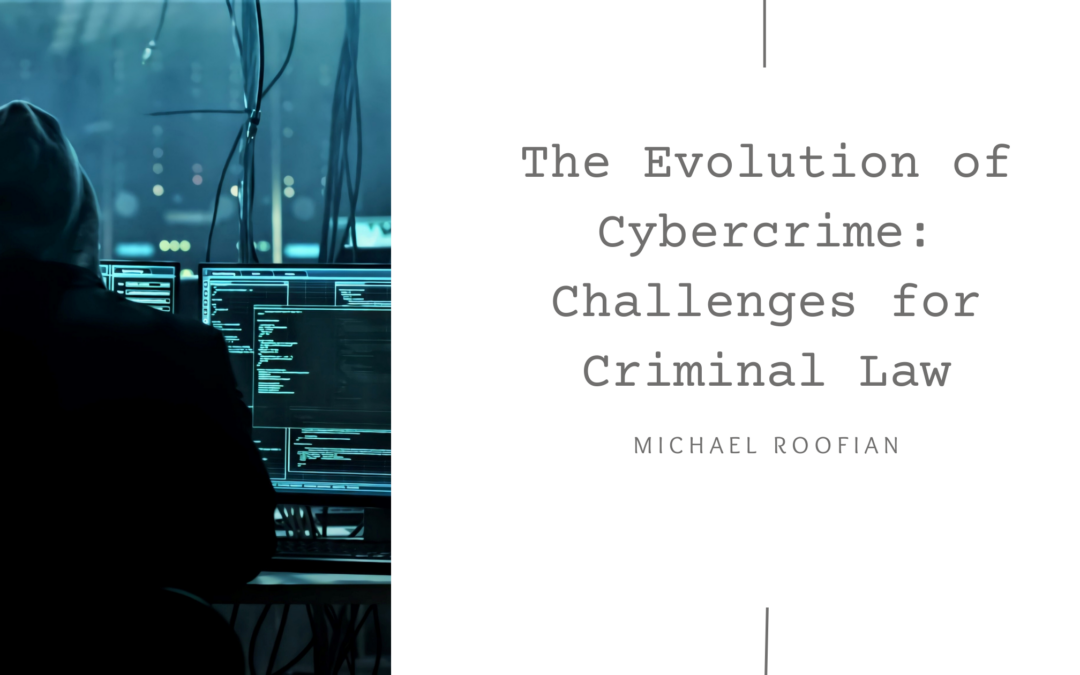As technology advances, so does the landscape of criminal activity. The evolution of cybercrime has presented unprecedented challenges for criminal law, pushing legal systems worldwide to adapt to the complexities of the digital age. This blog explores cybercrime’s dynamic nature and significant challenges to traditional criminal law frameworks.
Rapid Technological Advancements: The speed technology evolves is staggering, providing cybercriminals with new tools and techniques to exploit vulnerabilities. From ransomware attacks to identity theft, the constantly changing nature of cyber threats challenges criminal law enforcement agencies to keep pace and effectively combat these crimes.
Global Reach and Jurisdictional Issues: Cybercrime knows no borders, and criminals can operate from any corner of the globe. This global reach poses jurisdictional challenges for traditional criminal law systems. Prosecuting cybercriminals becomes intricate when they exploit legal loopholes by operating in countries with lax cybercrime legislation or hiding behind layers of anonymizing technologies.
Anonymity and Encryption: Using anonymizing technologies and encryption tools provides cybercriminals a cloak of invisibility. Identifying and apprehending individuals engaging in cybercrimes becomes increasingly difficult when they can operate anonymously on the vast expanse of the internet. The tension between privacy rights and the need for law enforcement to investigate cybercrimes poses a significant challenge.
Emergence of Cyber Warfare: The evolution of cybercrime extends beyond individual and corporate targets to encompass state-sponsored cyber warfare. Criminal law faces unprecedented challenges when addressing cyber activities carried out by nation-states, as the traditional frameworks designed for individual crimes struggle to respond to the scale and complexity of cyber warfare.
Challenges in Digital Evidence Collection: Unlike traditional crimes, cybercrimes often leave a trail of digital evidence. However, collecting and preserving this evidence poses unique challenges. The dynamic nature of digital information, the possibility of data manipulation, and the cross-border nature of cybercrimes require innovative approaches to ensure the integrity of evidence.
Capacity Building and Training: Law enforcement agencies worldwide must enhance their capacity to investigate and prosecute cybercrimes. This involves specialized training for investigators, prosecutors, and judges to understand the intricacies of digital evidence, cyber threats, and emerging technologies. The evolving nature of cybercrime demands a continuous commitment to professional development.
Legislative Gaps and Lag: Traditional criminal laws are often not adequately equipped to address the nuances of cybercrimes. Legislators need help to keep pace with the rapidly changing cyber landscape, leading to legislative gaps and delays in updating laws to combat emerging cyber threats effectively. Adapting legal frameworks to encompass the complexities of cyberspace is an ongoing challenge.
